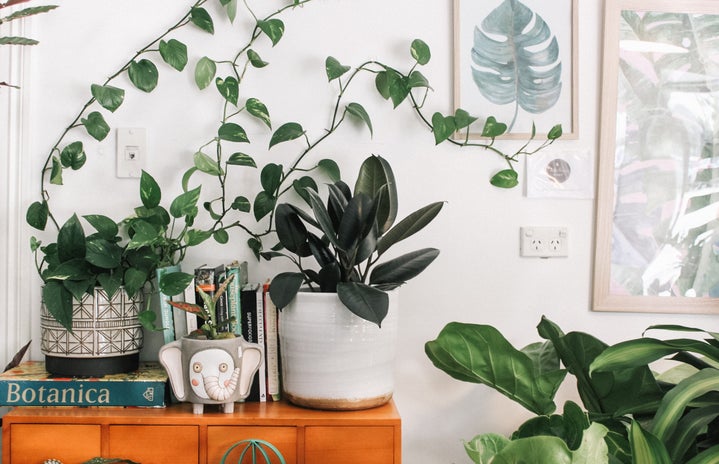Edited by: Mohan Rajagopal
In August of 2021, I bought myself a succulent. It was a bright yellow moon cactus which I named Kimboo. Kimboo had a spot reserved on my study table and every time I’d zone out in class or get distracted from my readings, that was where my attention was diverted to. I wouldn’t say I was the best plant mom but I wasn’t the worst either. I watered him whenever I had been instructed to and made sure he was getting enough sunlight. He seemed alright, pretty similar to how he was when we first got him, but a few days ago Kimboo died.
It wasn’t the first time—every day, we see things around us deteriorate, decay and collapse. Whose fault is that? Usually our own, but sometimes, nobody’s. Yes, you read that right, it’s nothing but entropy functioning in our daily lives. Usually taken to be the second law of thermodynamics, entropy exists beyond science as well. One day, nothing around us is going to exist anymore and there’s nothing we can do to stop that. It’s not going to happen all of a sudden but instead, there will be this slow gradual process that we won’t even realize is taking place. Contrary to popular belief, if most of us were conscious and aware of the disorder around us, it would not lead to more chaos. Understanding entropy leads to a radical change in the way we see the world because ignorance is responsible for many of our biggest mistakes and failures.
When we know there’s always a disorder over time, we can consciously aim for stability. Stability can be active or passive but a problem arises when we confuse the two. Relationships, for example, require constant attention and care. If you assume that your relationship is passively stable, you’ll expect to sail through the storm without any effort, which never works. You need to nurture it, actively. Your house is also not passively stable. If not cleaned regularly, it will continue to get messier and messier. The one untidy corner will become an untidy room and eventually an untidy house. With active stability, you’re applying energy to a system to make it work. When you pay attention to something and constantly care for it, it’ll stay alive for longer. You can’t prevent the disorder but at least you slow it down.
But I was never passive with Kimboo. Neither was I ignorant—I gave him attention, I gave him care. Why did he still die? Active stability was supposed to slow it down, right? But then it hit me—I didn’t draw a line. Too much care does the opposite of what you want it to do and instead of slowing down the process of decaying, speeds it up. Looking back now, perhaps I overwatered him, gave him too much sunlight, or Kimboo just wasn’t happy where he was. This was my hard lesson: too much active stability won’t provide stability at all.
We need to strike a balance between love and stability because as human beings, we tend to over-love. Maybe all Kimboo needed was his own space to grow and I kept encroaching on him. The extra sunlight, instead of making him grow, made him wither, and the extra water, instead of making him stronger, made him weaker. Do we know when we’re giving more than we should? Why can’t we stop? I think it’s because deep down we all have that persistent notion that extra attention, extra affection will come to us in some other form, some other day, but that’s not always the case. Sometimes, it’s suffocating. The energy-draining has negative effects on both sides and eventually, just like Kimboo withered, the bond between people does too.
The tiny changes around us give us a deeper insight into the life we live, and more importantly, the life we can live if we start consciously being aware of them. This quote by John Green puts my words into perspective—“They come together, they grow together and so they must fall apart”.
That’s what life is and it’s not as pessimistic as you think. In fact, it’s kind of inspiring—despite the amount of disorder and the amount of chaos, we’re still here, trying to defy the laws of entropy to maintain a level of stability.
However, this was never just about the plant—it was about changing perspectives and understanding the different environments, about the philosophy of existence and the science of how we love. Sitting at my study table while writing this article and looking at the now-empty spot which once had a flourishing yellow cactus made me realise the impact of something as minuscule as a succulent, and how, ironically, only after its death could it teach me about life and how to make the most of it while I’m still around.


